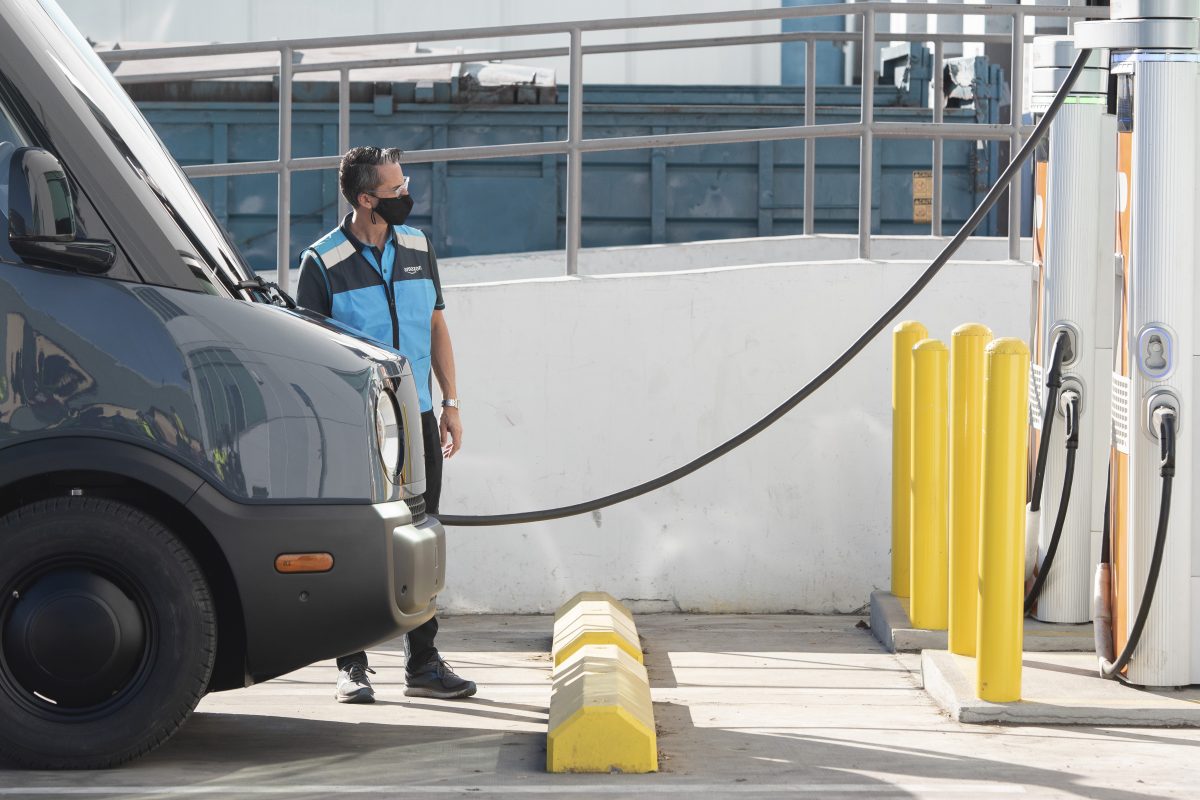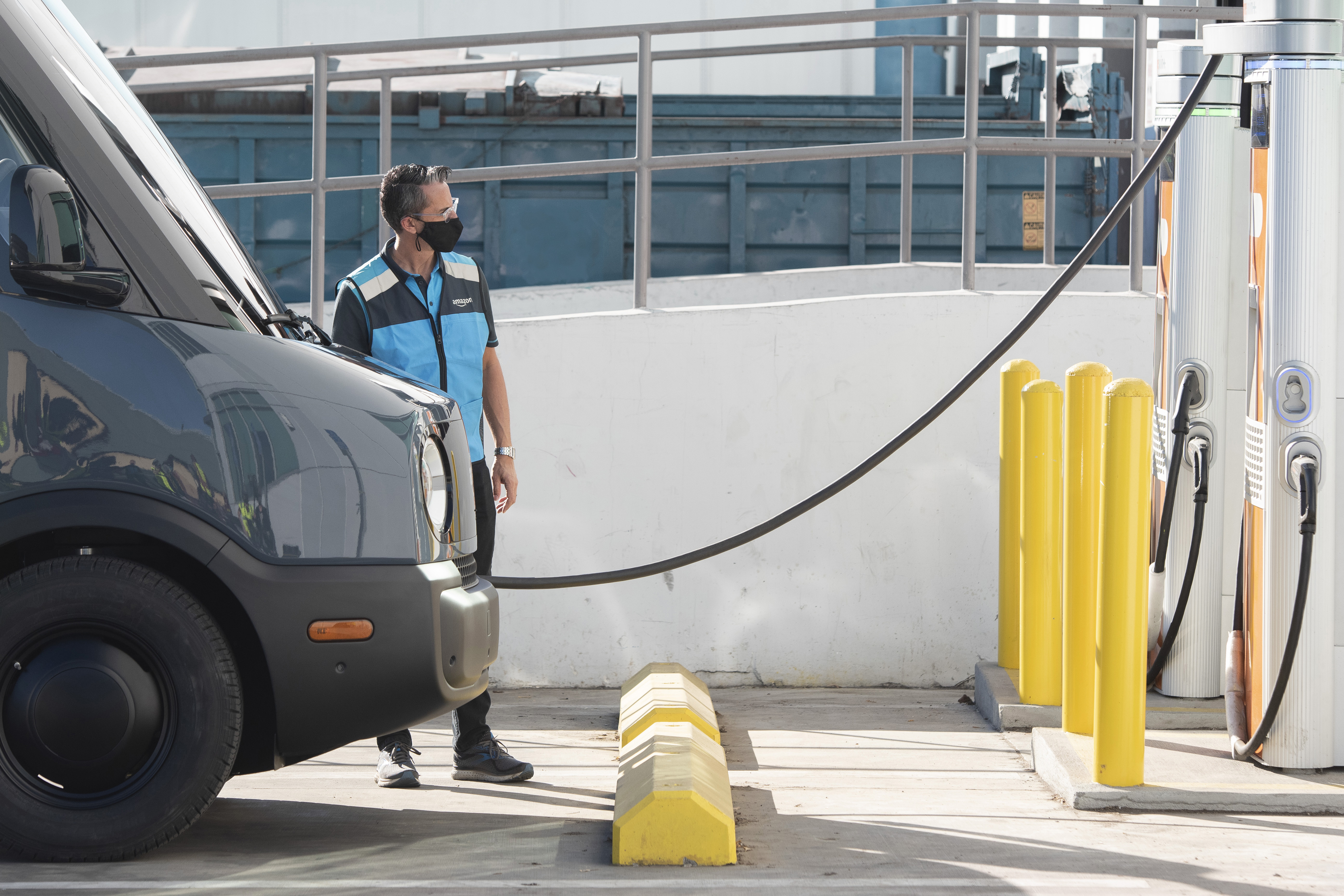Amazon has started making deliveries to customers in Los Angeles using electric vans designed and built by Rivian.
The electric vans, which are part of Amazon’s 2040 climate pledge, won’t go into series production until the end of the year, according to an update Wednesday by the company. Amazon declined to reveal how many electric vans were in the test fleet.
The customer deliveries are part of continuous testing being conducted by Amazon and Rivian to measure performance as well as safety durability in various climates and geographies. Road tests first started more than four months ago. The current fleet of vehicles was built at Rivian’s headquarters in Plymouth, Michigan and can drive up to 150 miles on a single charge. Rivian engineers will continue to refine the vehicles for the start of production at its Normal, Illinois factory.
In the meantime, these electric vehicles will continue to pop up on delivery routes in up to 15 additional cities in 2021. Eventually, Amazon plans to deploy at least 100,000 electric vans — the size of its order with Rivian — over the next several years.
Amazon and Rivian began testing vehicles four months prior to making customer deliveries, as part of the testing and development process. Amazon is also starting to modify its buildings to accommodate the new fleet of vehicles and has installed thousands of electric vehicle charging stations at its delivery stations across North America and Europe, the company said.
“We’re loving the enthusiasm from customers so far–from the photos we see online to the car fans who stop our drivers for a first-hand look at the vehicle,” Ross Rachey, director of Amazon’s global Fleet and products, said in a statement. “From what we’ve seen, this is one of the fastest modern commercial electrification programs, and we’re incredibly proud of that.”
The exterior of Rivian-built electric vans share some the same design features found in today’s gas-powered versions. There are a few more rounded edges and an overall sleeker look to the electric vans.
The real difference is in the electric architecture and the custom features that have been integrated into the vans, including, highway driving and traffic assist features; exterior cameras that can provide a 360-degree view for the driver via a digital display, a larger interior floor space in the cabin to help with drivers getting to and from the cabin compartment, surround tail lights for better braking visibility and three-level shelving and a bulkhead cargo compartment separating door. Amazon’s Alexa voice assistant is also an embedded feature.

